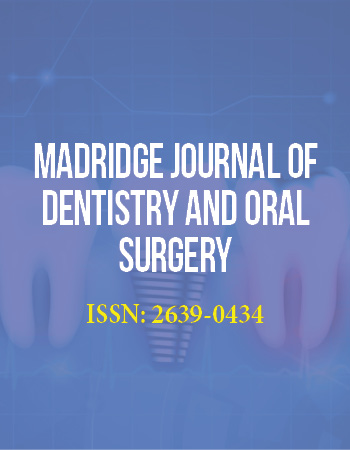International Conference on Dentistry
April 3-5, 2017 Dubai, UAE
Antifungal effect of henna against Candida albicans adhered to acrylic resin as a possible method for prevention of denture stomatitis
University of Dammam, Saudi Arabia
Denture stomatitis is a very common disease affecting the oral mucosa of denture wearers.
The aim of this study was to measure the antifungal effect of henna against Candida albicansadheredto acrylic resin as a possible method for prevention of denture stomatitis. One-hundred-eightyacrylic plates were prepared of heat-cured acrylic denture resin. The specimens were divided intosix groups of 30 samples each. The first group was only polymer and monomer following theconventional manufacturer instruction for processing complete dentures. The other five groups wereprocessed by adding different concentration of Yamani henna powder (Harazi) to the polymer in aconcentration of henna: polymer 1%, 2.5%, 5%, 7.5% and 10%, respectively. Samples were incubatedin artificial saliva rich with Candida albicansat 37 _C, and the effect of henna on Candida albicanswasevaluated in two different methods: semi-quantitative slide count and a culture-based quantitativeassay (quantitative). Variation in the number of live Candida was observed with the increase in theconcentration of Yamani henna powder. It was observed that the variation in live Candida, betweencontrol group and group B (concentration of Yamani henna powder was 1%), was statisticallysignificant with a p-value of 0.0001. Similarly, variations in live Candida were significant, whenthe concentration of powder was 7.5% or 10% in contrast with control group and p-values were0.0001 and 0.001 respectively. Adding henna to acrylic resin denture could be effective in controlling.
Candida albicansproliferation on the denture surface; however, its effects on the physical properties ofacrylic resin denture need further studies.
Biography:
Amal Nawasrah a Jordanian lady living now in Saudi Arabia, working as prosthodontist in the University of Dammam as a lecturer since 2010. She is really very interested in teaching and in conducting research and eager to continue in this field. On more note, she got a patent in incorporation of henna powder to PMMA during processing, as antifungal agent to prevent denture stomatitis. The patent was accepted from United States Patent and Trademark Office, with the confirmation number 7326. And now she is starting studying the mechanical and physical properties


